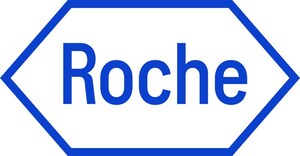ATHENA Data Presented at International Papillomavirus Conference Support Use of Roche's cobas® HPV Test in Primary Screening for Cervical Cancer
BERLIN, September 19, 2011 /PRNewswire/ --
- Data demonstrate the cobas® HPV Test, with its option of individual HPV 16 and 18 genotyping, provides additional risk stratification for high risk HPV-positive women
- A separate study by Dutch HPV experts validates the cobas HPV Test for use in primary screening utilizing its ability to detect 14 high risk HPV types
Roche (SIX: RO, ROG; OTCQX: RHHBY) today highlighted data from a sub-analysis of the ATHENA (Addressing THE Need for Advanced HPV Diagnostics) landmark study, demonstrating that HPV DNA tests, including the Roche cobas HPV Test, could be used for the primary screening of cervical cancer. The data, which was recently published online in The Lancet Oncology, was presented at the 27th annual International Papillomavirus Conference (IPV).
ATHENA data showed that identifying women with HPV 16 and/or 18, the two genotypes detected in approximately 70 percent of cervical cancers, provided important predictive information to determine a woman's risk of cervical disease.
Current guidelines for cervical cancer screening allow for either cytology (Pap test), or cytology plus HPV DNA testing to determine the risk of cervical cancer. However, data demonstrated that HPV DNA testing as primary (or first-line) screening identified cervical disease at a higher rate than cytology alone. These results indicate that HPV testing with separate HPV 16 and HPV 18 detection could provide a sensitive and more efficient strategy for cervical cancer screening than do methods based solely on cytology.
"The ATHENA study continues to provide ample data to help refine and advance HPV screening," said Mark H. Stoler, MD, Professor and Associate Director of Surgical Pathology and Cytopathology, at the University of Virginia Health System. "These new data suggest that HPV testing is an efficient, reliable and potentially cost-effective primary screening tool. Moreover, the use of the HPV 16 and 18 genotyping information provided by the cobas HPV Test or reflex cytology, would offer a rational approach for determining which HPV positive women need immediate follow up."
The cobas HPV Test is one of the only screening tests available globally that individually identifies genotypes 16 and 18, while simultaneously detecting 12 other high-risk HPV genotypes.
cobas HPV Test Validated for Primary Screening in the Netherlands
In a separate study published online by the Journal of Clinical Microbiology, a team of Dutch HPV experts led by Danielle Heideman, PhD, clinically validated the pooled high-risk HPV instrument of cobas HPV Test for primary screening of cervical cancer. The Netherlands was the first European nation to announce its intention to use HPV testing as a primary screen for cervical cancer.
About the Roche ATHENA Clinical Trial
The Roche ATHENA study for the cobas HPV Test is the largest U.S.-based registration study for cervical cancer screening, including more than 47,000 women. The study is designed to answer current medical and scientific questions about the importance of testing for high-risk HPV genotypes in cervical cancer screening and to provide clinical information about the specific HPV genotypes that place women at highest risk for developing cervical cancer. Results show the cobas HPV Test is comparable to the current standard of testing. Results also demonstrated that one in 10 women, age 30-years and older, who tested positive for HPV 16 and/or 18 by the cobas HPV Test had cervical pre-cancer, although their Pap test was normal.
About the cobas HPV Test
Roche's cobas HPV Test simultaneously detects 12 high-risk HPV types (HPV types 31, 33, 35, 39, 45, 51, 52, 56, 58, 59, 66 and 68) as a pooled result, as well as HPV genotypes 16 and 18 individually. Roche received FDA approval on the cobas HPV Test and in April 2011 and launched the cobas HPV Test in countries that accept CE Mark in 2009.
About Human Papillomavirus and Cervical Cancer
Persistent infection with human papillomavirus is the principal cause of cervical cancer in women, with HPV implicated in greater than 99 percent of cervical cancers worldwide. Of the more than 118 different types of HPV, 13-16 types are currently considered high-risk for the development of cervical cancer and its precursor lesions. HPV types 16 and 18 have been identified as the highest risk genotypes, detected in approximately 70 percent of cervical cancers. Nucleic acid (DNA) testing is a sensitive and non-invasive method for determining the presence of HPV infection.
The World Health Organization estimates there are 470,000 new cases of cervical cancer annually.
About Roche
Headquartered in Basel, Switzerland, Roche is a leader in research-focused healthcare with combined strengths in pharmaceuticals and diagnostics. Roche is the world's largest biotech company with truly differentiated medicines in oncology, virology, inflammation, metabolism and CNS. Roche is also the world leader in in-vitro diagnostics, tissue-based cancer diagnostics and a pioneer in diabetes management. Roche's personalised healthcare strategy aims at providing medicines and diagnostic tools that enable tangible improvements in the health, quality of life and survival of patients. In 2010, Roche had over 80'000 employees worldwide and invested over 9 billion Swiss francs in R&D. The Group posted sales of 47.5 billion Swiss francs. Genentech, United States, is a wholly owned member of the Roche Group. Roche has a majority stake in Chugai Pharmaceutical, Japan. For more information: http://www.roche.com.
All trademarks used or mentioned in this release are protected by law.





Share this article